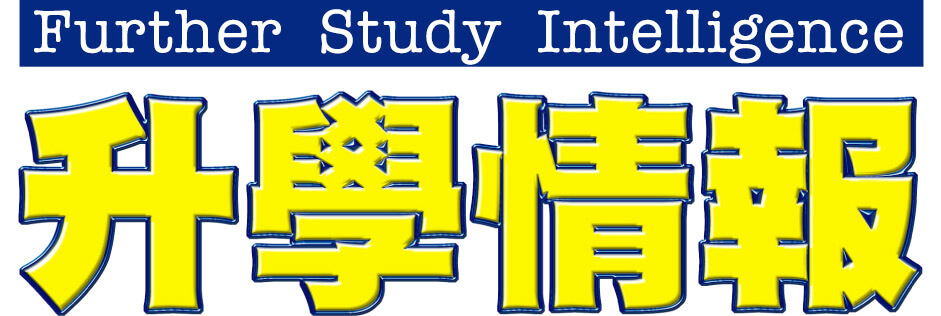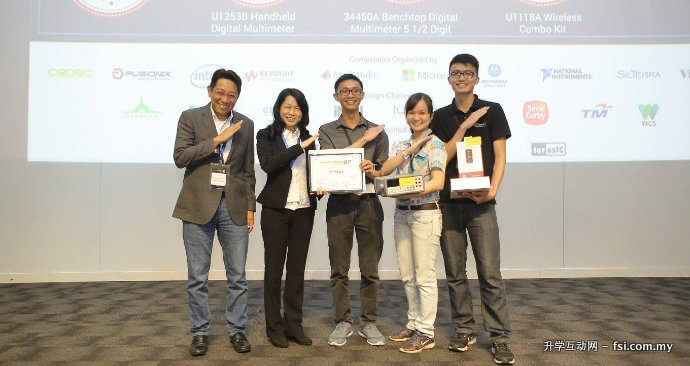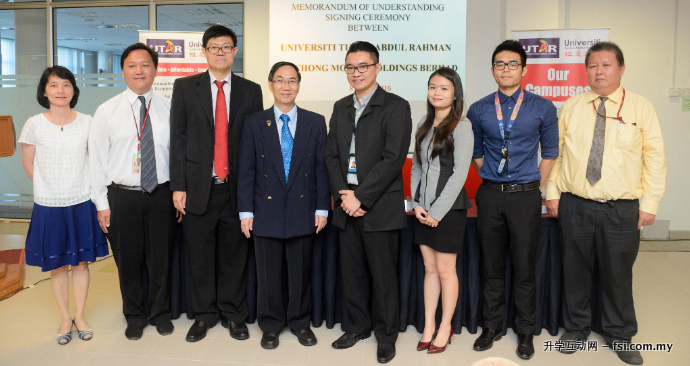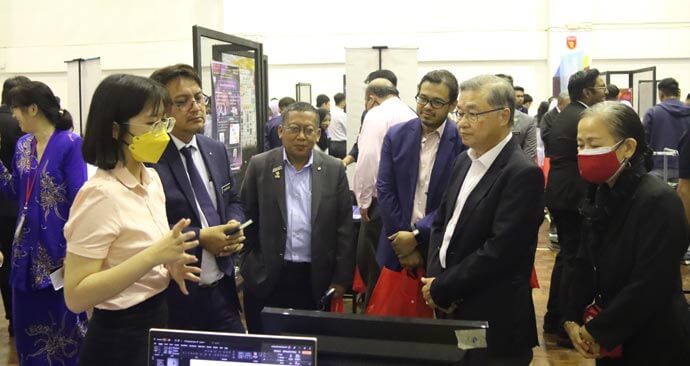A team of Lee Kong Chian Faculty of Engineering and Science (LKC FES) Bachelor of Science (Honours) Architecture students, consisting of team leader Amelia Low Chuan Yin, and members Cheah Yi Theng, Cheong Li Bin, Ho Song Sen, Jameson Yong Bee Jing, Koh Kwok Ming, Lee Jun Huang, Lee Kai Shin, Lum Li Qi, Lum Yeong Kang, and Sam Zheng Hwa, was awarded the Honourable Mentions at the Ghana Innovation Farm Competition 2021, organised virtually by Young Architect Competitions (YAC) from October 2021 to February 2022. In addition to receiving an award certificate, the award entitles the team’s project to be transmitted to architectural magazines, websites and international exhibitions.

Official announcement by the organiser.
The aim of the competition was to provide a platform for participants to design a technological and cultural hub in Ghana that will address the global food supply chain challenges. It is the third edition of the Manni Group Design Awards, which is InspiraFarms’ ally for the creation of a beacon of culture and innovation. It shall be a training centre and a reference for the local community providing resources, knowledge, and solution that can meet the most basic of human rights: access to food.
Team advisor-cum- LKC FES academic Ar Loo Wan How congratulated the team, “This is a good competition as the subject itself is highly relevant to the contemporary issues that the world is facing and it is also in line with the direction that the university is pursuing which is sustainable design. In addition, the panel of jury consisted of some world-class/elite architects and some of them were Pritzker prize laureates. The recognition means a lot as validation on the design thinking/philosophy that the team members have developed in the design competition.”
Low, on behalf of the team, enthused, “Before this competition was launched, my team and I represented UTAR to participate in Guangdong-Hong Kong-Macau Greater Bay Area – ASEAN International Colleges Bamboo Design and Construction Competition in 2021 and we won several awards. Since then, we have wanted to take up more challenges and obtain more experiences by participating in international competitions. At the same time, as Architecture students, we believe we are also responsible for upgrading the quality of life for people who are living below the poverty line. We are committed to providing new and alternative solutions to improve the global food challenges. Besides that, we would like to share our solutions worldwide, hoping someday these ideas will be able to contribute to the society and make a better world for everyone.”
She added, “When the result was announced, we were so happy and grateful that our project was shortlisted for the finals and was able to win the Honourable mention prize. The competition was quite challenging for us. However, we tried our best to utilise the knowledge and skills we obtained in our course. We are very thankful and grateful to our lecturer, Ar Loo Wan How for giving us lots of advice and encouragement to complete our design.”
The team also thanked UTAR for the encouragement received. “UTAR has continuously motivated us to participate in various competitions nationally and internationally, which provides us exposure to the realistic outlook of real life. We received a lot of guidance from our lecturers throughout our academic year. We were also taught to showcase our skills as well as analyse and evaluate outcomes which prepared us to face more challenging adventures in the future. We are very glad to have the opportunity to represent UTAR in an international competition,” said the team.
The award-winning project titled “The Re-Intellect Farm” is a new typology farm that aims to combine the process of planting, harvesting, processing, packaging and distribution as well as food education into a single farming community. This is designed to answer the issues of the Global Food Challenge, by bringing the agricultural revolution to Ghana. The team explained that the number of people facing undernourishment and severe food insecurity is estimated to have reached 821 million – around one person out of every nine in the world – according to the Food & Agriculture Organization of the United Nations. According to the World Food Programme (WFP), Ghana is faced with the triple burden of malnutrition (underweight, overweight and vitamin and mineral deficiencies).
The team further elucidated, “The Re-intellect Farm shows the evolution and transition of an old farm system in the modern world. The idea was conceptualised based on our research on having more green space, clean building material, a better food waste management system, storage and processing facilities, transportation system, and the integration of a food education centre. Hence, a new agricultural system was proposed in this project so that can provide an alternative way of restoring the land. At the same time, suggestions were given to deal with societal issues such as poverty and starvation more effectively.”

The concepts of the project.
“As Architecture students, I believe we can contribute to reducing poverty by having a better design of buildings and infrastructure. We can explore the possibility of providing better design to address the global challenges of food supply chains. The “Re-Intellect Farm” was aimed to integrate modern technology and vernacular architecture expression and culture, so that the design can generate a greater availability of products and job opportunities in Ghana,” the team added.
The project aims to bring a positive impact to the environment and society by combining the modern technology and vernacular architecture expression and culture (Compound House), including, replenishing the degraded soil, reducing food loss, increasing the stability of farmers’ income, increasing agricultural efficiency, providing a farm to guarantee food, wellbeing, and sustenance for younger generations, and integrating tradition and modernity to achieve a sense of belonging. The project is also related to United Nations’ Sustainable Development Goals (SDGs). “Ending poverty in all its form everywhere is listed as a top priority among 17 Global Goals identified by the 2030 Agenda for Sustainable Development. Despite advancements in modern technology, poverty and food insecurity remain threats in this 21st century. With the ongoing COVID-19 pandemic, climate change and conflicts, a growing number of people in South Asia and sub-Saharan Africa are living in poverty. Due to gender inequality, females are more likely than men to live in extreme poverty. To eradicate poverty, we need to support the vulnerable communities by giving them better access to basic infrastructure, education and resources,” explained the team.
Online Education Fair 线上教育展
Universiti Tunku Abdul Rahman (UTAR)
拉曼大学 (優大)
https://edufair.fsi.com.my/utar












